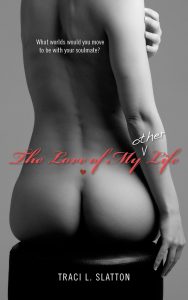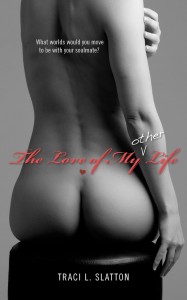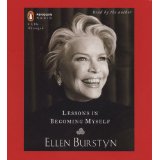LESSONS IN BECOMING MYSELF by Ellen Burstyn
This summer I will enjoy a birthday milestone: I am turning 50. It’s a big, rich age, but also, for a woman, one with certain questions attached. Our culture tends to marginalize older women, so how do I squeeze all the juice from the ripeness of these years? Who are my role models for vibrant, successful, creative, sexy women in the fullness of their decades?
I was musing on this subject when I came across a mention of octogenarian actress Ellen Burstyn’s memoir. I admire Ms. Burstyn’s work, I think she’s beautiful, and I was intrigued enough to download the kindle version.
This thoughtful, well-written book contained some answers. It’s often thus in my life: if I hold something lightly but clearly in my consciousness, it will materialize. There’s a magic and mystery to consciousness that affects everything around it. In fact, this is one of the liet motif’s of Burstyn’s book.
I think we read memoirs and biographies with an eye toward the parallels with our own lives. We look for the similarities of background so can we be inspired with an expanded vision for our own future. We want to know what our own potential is, so we compare ourselves to those who’ve gone before. Burstyn is an actress and I am an author, but there was enough in common to cause me to pause and think deeply about where I’ve been, where I’m going, and who I’ve been and am going to be.
For me, the first point of resonance was familial. I hold a deep empathy with Burstyn’s accounts of her mother. It wasn’t my mother who beat me, it was my father, but my mother was a cold-hearted person who dedicated herself to invalidating and dimunizing me at every turn. Anyone who’s experienced that knows the fullness of it.
I understood exactly what Burstyn meant when she described herself as looking at her mother and thinking “I don’t want to be like that.” It’s a particular kind of bone-deep dislike, and a kind of grief that must be integrated, and ultimately transcended, in order to accept and to love oneself as a woman.
My mother was a heavy smoker and I never looked at her without seeing her as surrounded by a cloud of poison.
Oddly enough, my grandmother, who played poker and sewed quilts and had to live on the wagon after decades as a falling-down, black-out drunk alcoholic, was at least as heavy a smoker, but I never perceived her the same way. Perhaps that was because she offered me a deep love and kindness that sustained me.
Her love was unstintingly returned. After all, love isn’t about perfectionism. In fact, the two are opposites, I think.
But thankfulness and love are close kin. Indeed, I owe my grandmother a debt of gratitude. It was she who suggested that I wasn’t trapped by my family of origin. One day, when I was 6, my father beat me to the point that my tough old bird of a granny went into another room to cry. When the episode was over, I went to check on her.
“When you grow up, you can leave these people far behind and never come back, Traci,” Granny said.
I don’t remember this moment specifically. Granny told me about it shortly before she died. Everything in me ached with truth and remembrance, though I couldn’t pull up the file in my brain.
Burstyn talks about leaving home on the day she was 18: “There was no force on earth that could have stopped me.” I get that. I headed out when I was 17, my acceptance from Yale in hand. Burstyn yearned to see the world, and that yearning still fills me all the way into my toenails.
Burstyn had her beauty, pluck, and innate intelligence to rely on, while I had a talent for school work. She became a model and actress while I went to college and then to graduate school. I burned with the longing to write books. It’s that longing that has led me through my life.
Burstyn made some interesting and regrettable choices for mates along the way, as I have. She writes about her third husband stalking her for years, threatening to kill her. My heart wrung with understanding. My former husband has pursued me via the legal system, suing me repeatedly, losing, and then hiring ever more expensive attorneys with ever fiercer reputations, until the last time in court, when he showed up with an entourage of attorneys said to be some of the meanest and costliest in the city.
The judge dismissed his suit against me, but I wonder if my ex’s blood lust is assuaged. One therapist told me, “If he’d had a different background, he would have picked up a gun. Given where he comes from, he’s firing his lawyers at you.”
Burstyn’s in-laws blamed her and her success and treated her badly, something else I well understand. I haven’t been as successful as Burstyn but there’s no question that my ex’s family lives in narcissistic distortion around the matter of our failed relationship.
Burstyn has done a lot of meticulous work on herself and she’s able to ask herself the penetrating questions: what in me allowed me to marry this unbalanced man? How is he carrying my shadow?
For me, there’s no question that the sneering condescension with which my ex treated me for the 20 years of our relationship, and the dozen years since it ended, was a replay of my mother’s contempt for me. His desire to annihilate me since we parted is a reiteration both of his pathological desire to control me, and of my rageful father’s intentions. The way my ex is treating me now is not different in kind from the way he always treated me—it is different by degree.
I chose a man like that because of my own wounding. If I had healed myself earlier, I would not have made that choice. Repetition compulsion is a bitch.
I have the sense that Burstyn was able to use her fear and sorrow over her ex-husband in her craft as an actress. As an author, I use my experiences in my own writing, so I’ve found a way to be grateful for almost everything I’ve been through. I am currently working on a novel set during WW2, and my former husband’s unbounded aggression toward me, and his absolute certainty that he is justified in it, has given me my prototype for the Nazi’s—in particular Josef Goebbels.
Hannah Arendt has said that evil is banal, but I disagree. I think that evil feels itself to be justified in its actions. I do marvel at the way my former husband feels justified in his behavior.
Artists mine their own lives for their creations. In this way, the suffering I’ve endured has given me ample material. Life deals everyone some shitty cards. The question is, how do we play those cards? How do we make our hand meaningful?
The game isn’t about wallowing, it’s about redemption.
I enjoyed reading about Burstyn’s evolution as an actor, her education by Lee Strasberg, and her integrity toward her craft. I can relate to that, as well. At Yale and at Columbia, I was taught by exceptional writers and thinkers. Then I had to go out and apply what I learned, and to work with it every single day. I will continue to work on my craft until the day they pry the keyboard out from under my stiff, lifeless fingers. I have a feeling that Burstyn will be plying and perfecting her path until she is literally unable to walk onstage. I admire that.
Hard work, integrity, and gratitude aren’t the only paths to redemption. There’s also the exploration of consciousness. Burstyn writes movingly of her forays into the metaphysical realm. If you open yourself, the universe—or God, “the Force,” the spirit of all that is—will speak to you in direct, palpable, and wondrous ways.
Burstyn’s film Resurrection arose from her inquiries into the numinous, and, similarly, I attended a healing school and spent 10 years as a hands-on healer, with a practice. I still have a daily practice of yoga and a nurturing spiritual life of prayer and meditation. Though, to be sure, I spend as much time arguing with God and yelling at God as I do praying.
When I soften and relax into reverence, I can feel the sweet, loving, healing humor of the Divine—like the warmest smile imaginable, hugging my entire being.
I liked what Burstyn had to say about the divine feminine, and about women owning both their sexuality and their spirituality. I’ve been thinking a lot about this concept lately. We are creatures of spirit inhabiting bodies of flesh, and we must honor both our flesh and our soul. Denying spirit, as scientific materialists have done, or denying flesh, as so many religions have done, can only lead to imbalance, distortion, and disease—on both the personal and transpersonal levels.
It’s not our purity that will save us, it’s our richness.
I affirm both my eros and my sanctity.
A few notes that are more critical in nature. For one, it’s hard for me to understand Burstyn’s embrace of Islam, a religion so harshly patriarchal as to ruthlessly enslave women. She mentions Sufism as a way to explore the universal truths contained in all religions, but I couldn’t help but wonder if it was about her absent father. Did she gravitate toward male-deifying Islam as a way to fill her own “father” void?
Then again, I chose Judaism, so some people will discount my question purely on the basis of the ancient schism between Judaism and Islam.
My personal experience with Islam was taking Arabic at Yale. I was the only woman in the class, and the unspoken, underlying misogyny of the class was so intense that I rarely attended. I redeemed my grade only by doing an excellent final project: a translation from Scheherazade’s One Thousand and One Nights. With her infinite story-telling creativity, she is one of my beloved archetypes. Scheherazade was the reason I took the language—despite the contempt of my male classmates.
Remember, I have a high tolerance for contempt, because of my childhood.
Second, I was saddened to read of Burstyn’s regular use of recreational drugs. I suppose I stand practically alone of my generation in my stance that recreational drugs are bad, but I’ve seen lives destroyed by pot and other drugs. I do not share the current cultural embrace of marijuana. I think marijuana is destroying America and our future prosperity and success.
In particular, I wish Hollywood didn’t insist that drugs are cool. Is Hollywood so lacking in imagination that it can’t find another way to show that characters are hip and independent than to show them smoking pot?
Substance abuse just isn’t copacetic. Pot is not a success strategy, no matter how many movies and TV shows say otherwise.
Burstyn writes of finally giving up her addictions, as she continued to deepen her schooling in becoming who she is.
Third, Burstyn mentions that the current generation of actors doesn’t work as hard as her generation did. I have to say I agree with her. The young actors I know never talk about their craft. They talk about deserving to be rich and famous.
This generation of American kids is, largely, an entitled lot. They think everything should be handed to them. It’s sad. This isn’t true of every kid, of course. My lovely step-daughter, who is headed to med school, works with admirable zeal and dedication far into the night. But entitlement, lack of personal responsibility, and disrespectfulness do seem, generally, to characterize American youth—as I see with my two beautiful, lovable older daughters, who are, despite my love for them, disappointments to me.
I must bear some of the responsibility for their character flaws. I did the best I could as a mother, but it was difficult in the face of my ex-husband’s antics.
Life will, sooner or later, deal them some harsh truths. This is inevitable. I’m curious to see how they’ll respond. I pray for them that they’ll give up their certainty of being better-than and entitled. I pray that they will open up into humility and wonder. I hope for them that their education in becoming themselves will draw them forth into what is larger than their own small, insistent egos.
I hope for that for all of us.
It has been a sad lesson in detachment for me to let them go explore their narcissism.
So here I am, 49 and 9 months, trembling on the brink of 50, the mother of three daughters and a step-daughter, the author of 8 completed books with 2 more in the pipeline and several in the note-taking stage, a wife, an ex-wife, a mother, a daughter, a friend, a lover, a recovering healer, a dedicated yogi, an inveterate traveller, still burning to write books.
Who am I becoming over the next three decades?
What magic will consciousness wreak for me?
What parts of myself will I meet again, as if for the first time?
I don’t have the answers to these questions yet, but I’m grateful for Ellen Burstyn’s Lessons in Becoming Myself (New York: Riverhead Books, 2006), which is a kind of guidebook by a fellow traveller who is further along the journey.











